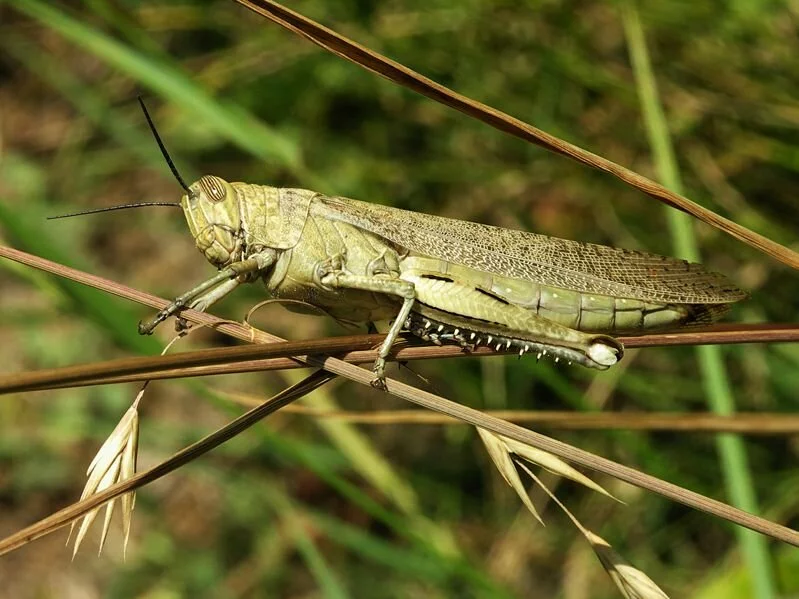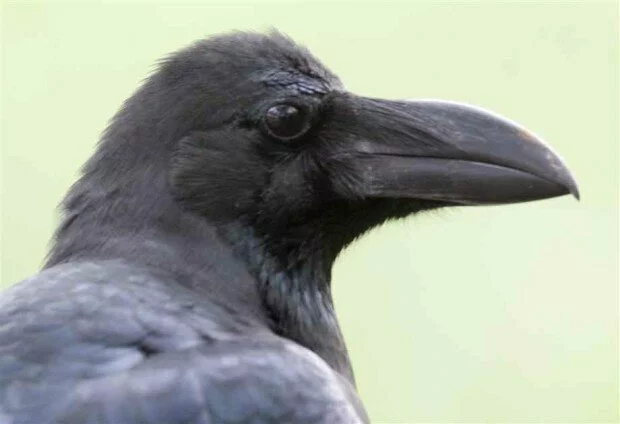For thousands of years, man has been haunted by plagues of the small but destructive creatures known as the locusts. They have been considered curses and punishment by many people throughout history, for the destruction and deadly consequences they leave behind are no small issue. Locusts migrate for far distances and in vast numbers. The multitudes of these insects in one swarm are more than enough to easily overwhelm the natural predators they have in any area. With such overpowering plagues, man’s struggle with these swarms has been a losing battle for much of history.
Despite their association with curses and divine punishment, most cases of locust swarms have a normal explanation. Swarming is a result of overcrowding. When the tactile stimulation of the locusts’ hind legs is increased, a stomach acid called serotonin is also increased. This causes the locusts to change color, breed more easily, and eat more than they usually do. As a result, they multiply more easily while still requiring more food to satisfy themselves. The search for more food then begins, and the ecosystem soon begins to suffer from their sudden crusade.
During times of recession, a species called the desert locusts (Schistocerca Gregaria) inhabit a long belt that stretches from northwest Africa all the way to northwest India. But when they begin to move, they can go as far north as Spain or Russia, as far south as Nigeria and Kenya, and as far east as southwest Asia. They can affect as many as 60 countries, equaling to 20 percent of the world’s land surface. They can live from 3 to 6 months, and there is a ten to sixteen fold increase of locust numbers from one generation to the next. This can lead to disastrous results if it is not dealt with.
The desert locust. itsnature.org
There are several recordings of locust plagues in ancient history. People in those past times had little to no defense from these swarms and usually had to simply deal with the consequences of these problems. One famous recording of a locust swarm is in the book of Exodus in the Bible. It was one of the plagues God cursed Egypt with, and along with the others caused great damage to the city. Their destructive power made them an ideal punishment from God to the slave-driver Egyptians.
There were other major plagues later in history. In the 1987-1989 plague, locusts crossed the Atlantic Ocean from Africa to the Caribbean in ten days. It goes to show just how far hunger can drive these insects to travel. The 2004 locust outbreak would have caused a disaster for nearly all of Africa had national teams not fought off the swarm (which ended up causing the US to lose about $400 million in fighting the plague). The locusts still managed to cause $2.5 billion in crop damage. These swarms can be a frightening problem.
Fortunately, we can now fight off or prevent these swarms much more effectively than before, although they can still be a sizable problem. Early warnings through satellites and spreading pesticides via motor vehicles to combat swarms that have already begun their migration are good methods to bring down the insect numbers.
wild-facts.com
Bio-pesticides are a somewhat different method to fighting the swarms. They are just as effective as conventional chemical pesticides but take longer to work and are usually harmless to the surrounding wildlife. There are two types of bio-pesticides. There is the biochemical type, which is similar to natural chemicals like insect pheromones. There is also the Microbial type, which causes a disease that is specific to the insect. These bio-pesticides have proven to be very helpful, as the diseased locusts which still haven’t died are usually caught by birds due to their lowered speed caused by the sickness. And since the bio-pesticides don’t affect other wildlife, the birds that eat the locusts are unaffected. Hopefully, we can use these methods and advance them to better the future of countries that have to deal with these swarms.
Locusts can be very destructive animals despite their small size, and we need to know how to properly deal with the swarms that lead to poverty for so many countries. If we continue to study and understand these insects more, maybe we can see a better future where their populations are controlled and the countries in their areas can rest easy concerning the safety of their crops and economy.







thank you for writing this article. god bless you and your family. p.s fantastic website youv’e done a wonderful job in creating a informative website on subject’s such as these ! i currently work for this web organization http://www.health.cbd.co healthy america 2010 advise board. Your website has some really well written articles in my field of work. i have passed this article onto some close colleagues who should find this well worth a read.
Thank you so much. It pleases me to see that my work is helping people. I hope your colleagues enjoy it as much as you did.
Guys, don’t fear the locusts… exploit them and stop wasting money (and environmental damage) on pesticides.
Think about this…
10kg of feed = 1kg of beef or 9kg of locust meat ( and they go out and get their own feed!! )
Treat this as a harvest both to feed populations and to trade on International markets
I appreciate there are challenges but ( pardon the pun ) flying against the flow of a hoard is not the answer
hello thanks for the reading.
I was very pleased to find this site. I wanted to thank you for this great read! I definitely enjoying every little bit of it and I have you bookmarked to check out new stuff you post. See ya
I admire your work , thanks for all the great articles .
I’ve been looking for something like this for a while now. Keep on going with those great posts.
I have been examinating out some of your posts and i must say pretty nice stuff. I will make sure to bookmark your blog.
Hiya! I simply wish to give a huge thumbs up for the nice information you may have here on this post. I shall be coming again to your blog for more soon.
I’d be inclined to play ball with you one this subject. Which is not something I typically do! I enjoy reading a post that will make people think. Also, thanks for allowing me to speak my mind!
Great article. Waiting for more.
Thanks for the inteligent post regarding this issue – most of the things you’ve mentioned I was not aware of before.
I think this is among the most important info for me. And i’m glad reading your article. But should remark on some general things, The web site style is great, the articles is really nice : D. Good job, cheers
Its like you read my mind! You appear to know a lot about this, like you wrote the book in it or something. I think that you can do with a few pics to drive the message home a bit, but other than that, this is wonderful blog. An excellent read. I’ll definitely be back.
All right, what a good start but i’ll have to consider that a little bit more. Will let you know what more there really is.
Wonderful post! We are linking to this particularly great article on our website. Keep up the good writing.